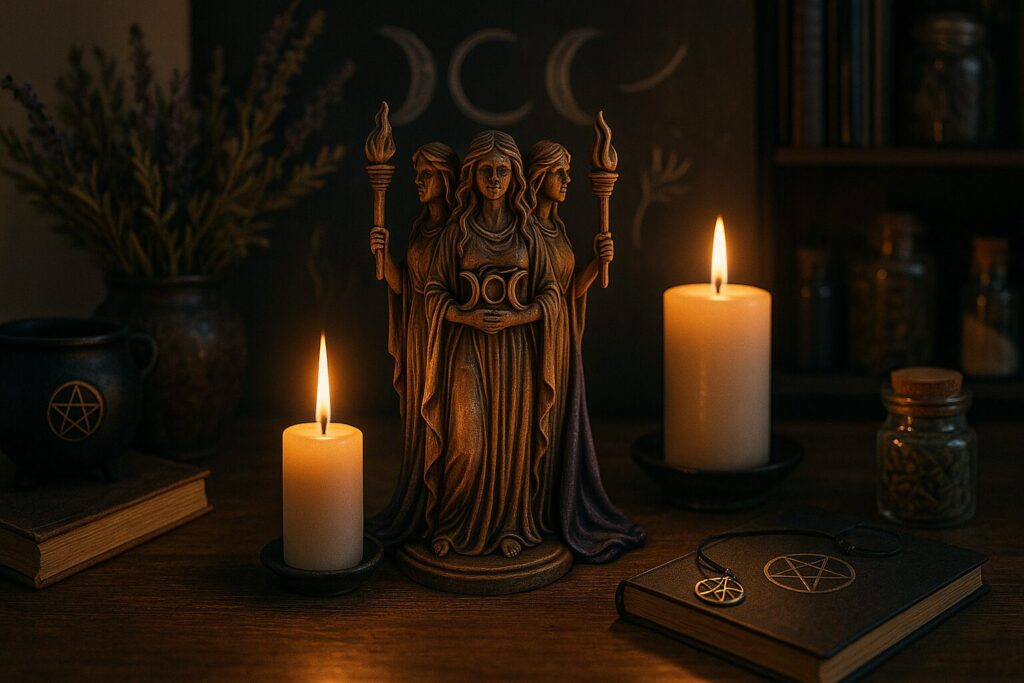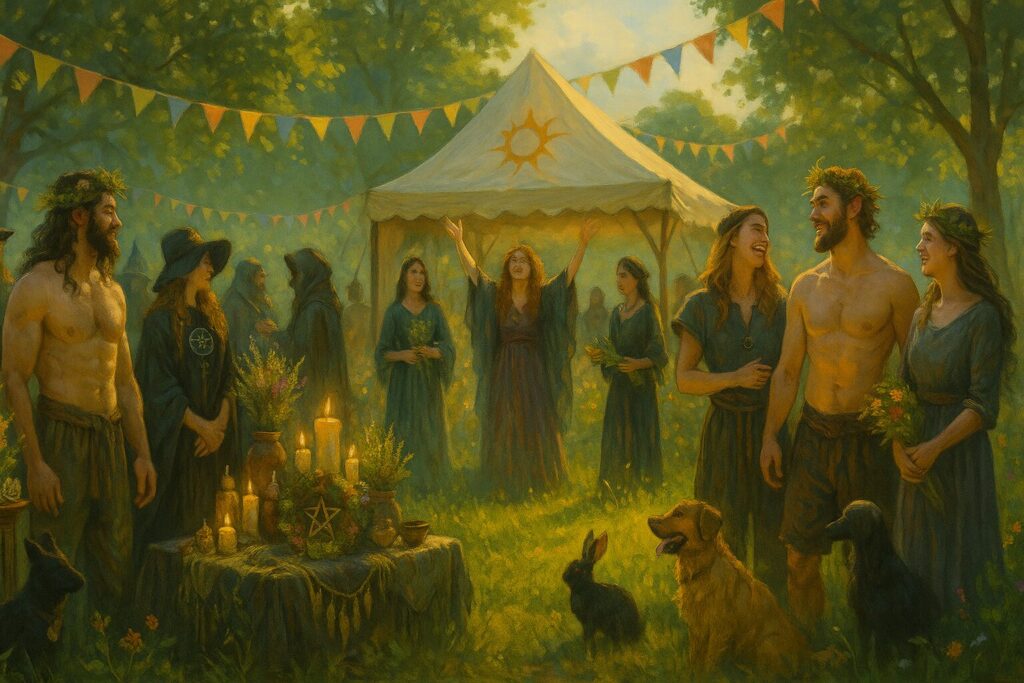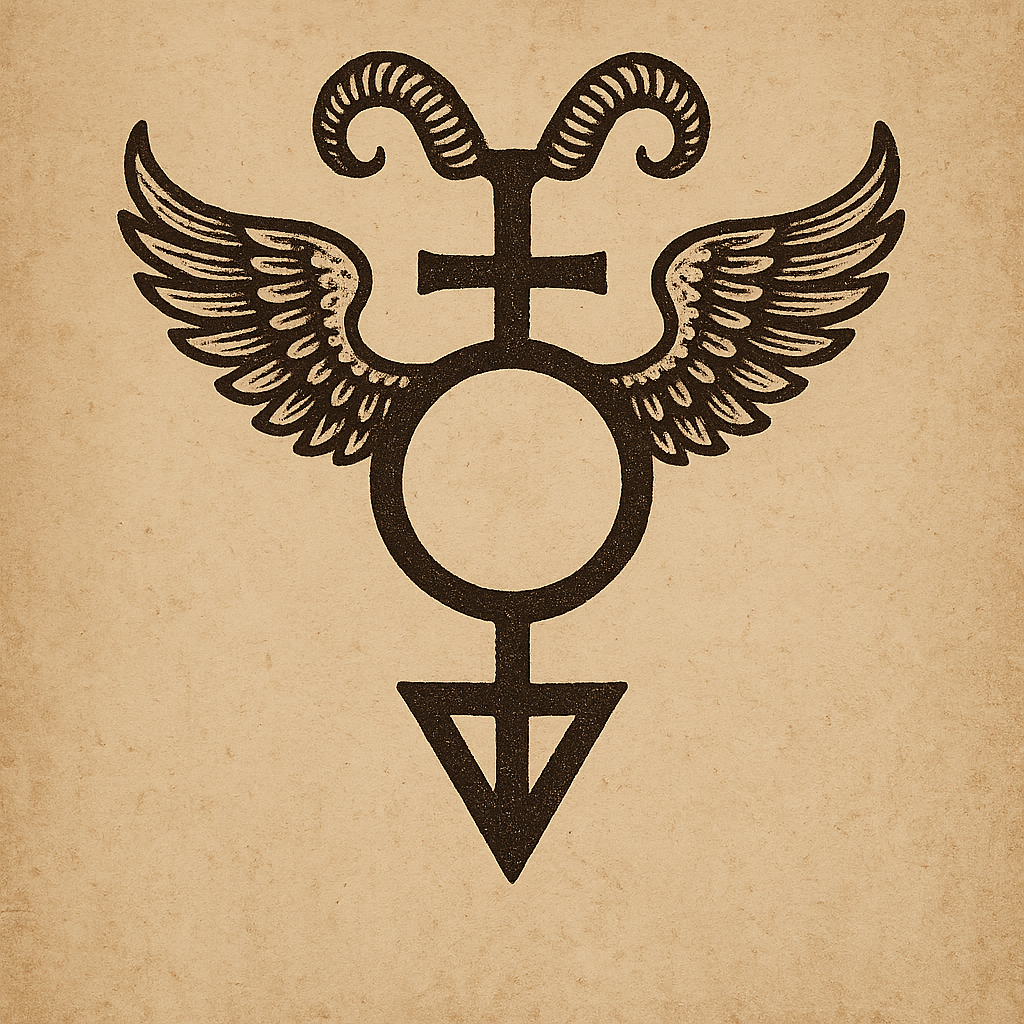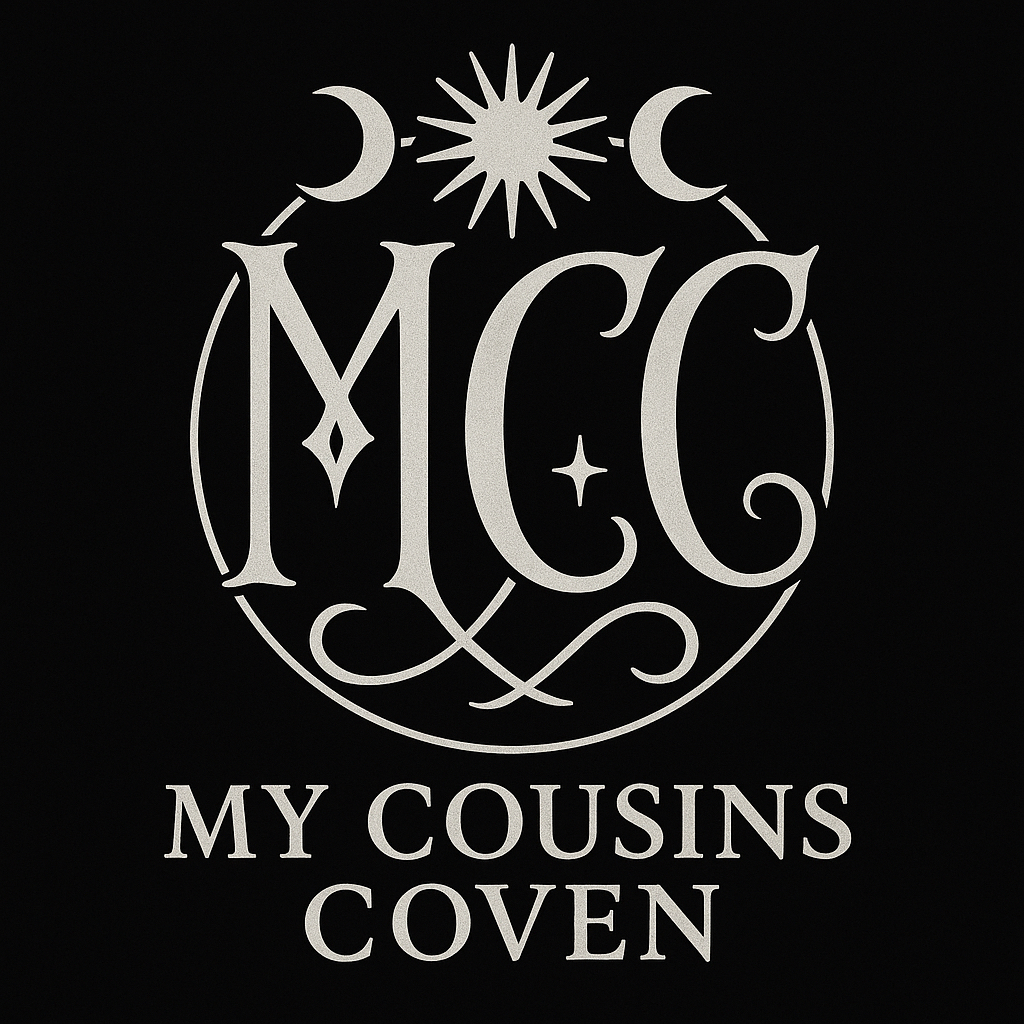Deity Work

Deity work, in the witch’s craft, is not merely belief but relationship—an unfolding conversation between mortal awareness and the living forces that shape existence. Some call it worship, but within our circle worship is understood as gratitude, not obligation. Reverence may arise naturally from awe, yet true connection blooms through familiarity: by listening, observing, and learning the rhythm of a presence that moves both within and beyond us. Divinity, as we know it, is not a hierarchy above the world but a universal current beneath it, an under-song weaving through every pulse of life.
The gods wear many faces. Some are ancestral, echoing through the blood and stories that made us; others emerge as archetypes or natural intelligences encountered in dream, ritual, or chance. To honor one is to acknowledge the pattern that runs through them all—a pattern that does not divide but reveals unity in difference. Witches do not fear multiplicity; we understand that the divine speaks in dialects. Over time, our pantheon becomes a chorus, each voice harmonizing with the next, shaping a symphony of meaning as the path widens and related gods join the song.

Beginnings are best grounded in lineage. Start with the deities of your heritage, your region, or your heart’s earliest symbols. When the bond deepens, new connections may unfold naturally—foreign yet familiar gods extending the same thread. A calling may come as a dream that lingers, a symbol that returns, a sudden stillness filled with knowing. The true ones illuminate rather than overwhelm; they recur, until you cannot help but listen. This is how the weave reveals itself: by persistence, by resonance, by timing too precise to ignore.
Devotion takes shape through rhythm—the breathing of the sacred through moon and season. At full and new moons, or during waxing and waning phases, we meet our gods in reflection. Solar festivals mark turning points of illumination; deity-specific days remind us that the divine, like the year, moves in cycles of presence and repose. Altars, candles, or stones placed beneath open sky or on alter are not demands for attention but invitations for recognition. What matters is constancy: the simple return of attention that nourishes both spirit and relationship.
Reciprocity is the soul of this work. Offerings—words, food, art, or service—sustain the exchange between seen and unseen. Gratitude keeps the energy in motion. The gods answer in kind, though not always in the ways expected: a phrase echoed in conversation, a bird that lands where no bird should, a spark of insight arriving unbidden. The signs may be dramatic or quiet, but when they recur with clarity, heed them. In that recognition, communication is complete.

MCC holds that the divine is dual yet infinite in hue. Light and dark are correspondents, shadow and shade the secret colors that makes the whole visible. Deities of night and day, birth and decay, wisdom and wildness all belong to the same living balance. Ours is a dualism of relationship, not opposition—a cosmic dialogue where each polarity affirms the other’s necessity.
From this understanding, our path flows through many tributaries—Wiccan, Hermetic, Celtic, Hellenic, Asatru—each adding voice to the larger harmony. We study, we listen, we blend where resonance is true, not where novelty tempts. Hermes and Hekate, Thor and Gaia, all embody the sacred current that joins the worlds—the Finger of Light, ever poised between force and form. To work with them is to stand within that corridor of balance, a participant in the divine exchange.
Yet the gods are not only gentle. Their silence can teach as much as their speech. They may turn our gaze toward shadow—our unexamined motives, our fears, our pride. In such encounters the witch is tempered, reminded that power without humility distorts. The divine does not demand perfection, only presence, and courage to face the mirror they hold.
To practice deity work, then, is to be seen as much as to see—to recognize that the gaze of the divine looks both outward and inward. Through it, we remember that we are part of the same shining weave, each thread alive with memory, mystery, and the promise of return.

Often Respected Gods of Witchcraft
Not exhaustive. This accordion groups commonly honored deities by craft type. Entries reflect frequent, respectful use in living covens and solitary practice; names vary by lineage and locale.
Craft Type Traditional British Witchcraft ›
Root-and-hedge current, pragmatic and ancestor-minded; favors reciprocity with land and house.
Craft Type Gardnerian Wicca ›
Initiatory polarity, formal rites, coven oaths.
Craft Type Alexandrian Wicca ›
Wicca with Hermetic theatre—precision, symbolism, beauty with purpose.
Craft Type Seax-Wica ›
Anglo-Saxon color within Wicca; democratic coven style.
Craft Type Dianic Witchcraft ›
Women-centered rites, sovereignty, healing.
Craft Type Reclaiming Tradition ›
Ecology + justice + ecstatic practice.
Craft Type Feri Tradition ›
Ecstatic, sensual, intensely personal; gnosis forward.
Craft Type Stregheria (Strega) ›
Family-rooted, kitchen-garden devotion, Italian folk stream.
Craft Type Green Witchcraft ›
Herbal, seasonal, place-based reciprocity.
Craft Type Seiðr / Norse Witchcraft ›
Fate-craft, spirit journey, and runic wisdom.
Craft Type Temple of Witchcraft ›
Mystery-school orientation; planetary/elemental work.
Craft Type Eclectic Witchcraft ›
Personal synthesis; signs and research guide syncretism.
Craft Type Chaos Magic ›
Belief as tool; deity as interface/mask when useful.
Craft Type Hermetic / Ceremonial (adopted) ›
Order, study, and precise ritual; witchcraft-adopted streams.
Craft Type Hoodoo / Conjure (adjacent) ›
Ancestor-driven, pragmatic result-work (not Wicca). Included because it appears on your chart.
Craft Type Luciferian Witchcraft ›
Light-bringing, self-sovereignty, shadow integration.
Craft Type Christian Witches (Syncretic / Folk-Christian) ›
Devotion that blends folk-magic with Christian cosmology. Note: Parity given here to God and the Devil for clarity, not hierarchy.
“Call upon the Goddess and God to protect you and teach you the secrets of magic. Ask stones and plants to reveal their powers — and listen.” — Scott Cunningham

